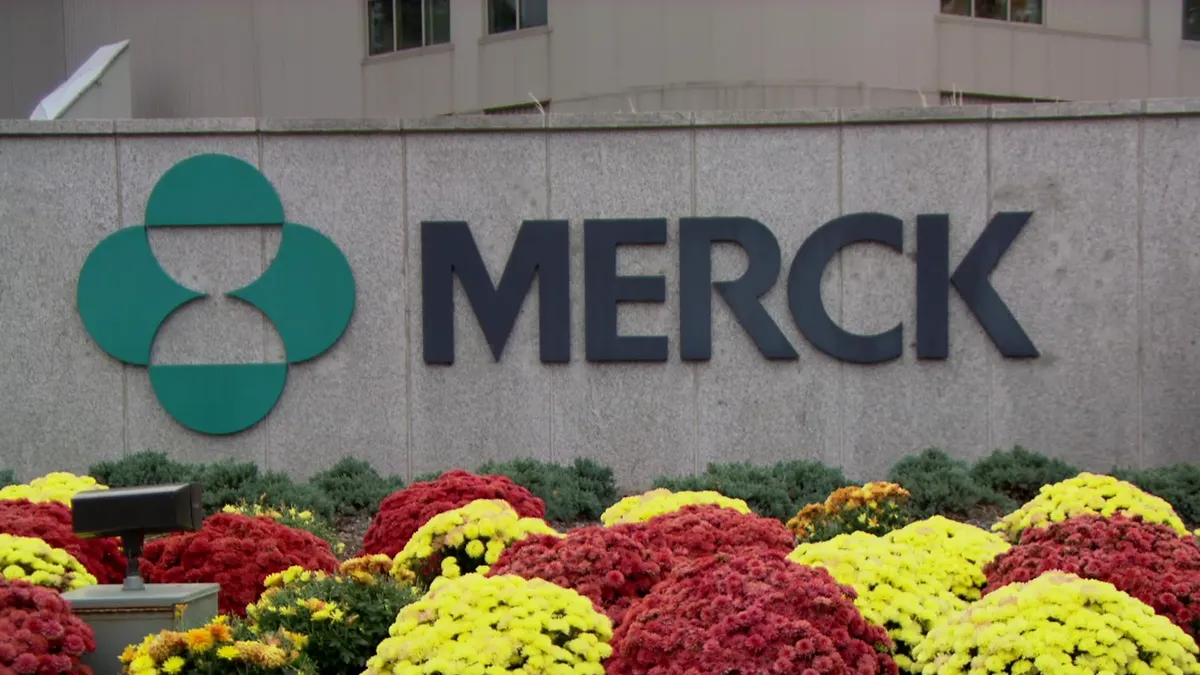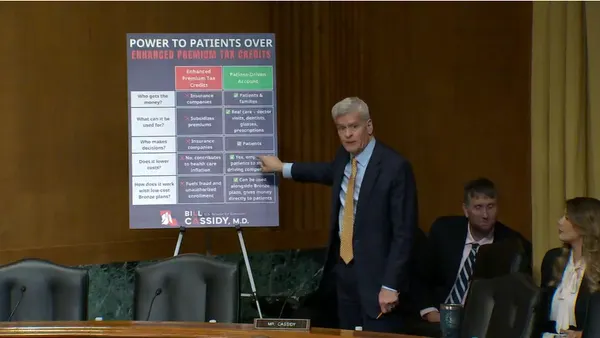Merck shares dropped almost 10% Tuesday after the company disclosed a “significant step down” in shipments of its Gardasil vaccine to providers in China during the second quarter.
Gardasil, designed to prevent infection with human papillomavirus, is Merck’s second-best selling medicine, after the blockbuster cancer drug Keytruda. In the second quarter, overall sales of the Gardasil franchise reached $2.48 billion, little changed from the year-earlier period. Analysts had expected revenue of about $2.7 billion for the product in the quarter, according to Leerink Partners.
Even though Merck expects revenue from Gardasil to keep increasing and reach $11 billion by 2030, investors zeroed in on the disclosure about China as a worrying sign. The Chinese market is critical for Gardasil, accounting for 60% to 70% of all sales outside the U.S. Merck was already bracing for a competitor to enter the Chinese market next year.
The shipment drop by Merck’s Chinese partner Zhifei in the second quarter was “surprising” and a “meaningful departure” from previous trends, CEO Robert Davis told analysts on a conference call Tuesday. “We believe there could be multiple factors that may be contributing to this dynamic, and we’re working closely with our partner to try to tease out what exactly is happening.”
Davis pointed to an anti-bribery drive in China that is affecting the overall market for medical products as healthcare providers and government agencies put more guardrails in place. In addition, Zhifei scaled back its promotional efforts for the HPV vaccine as it broadened its portfolio. Merck is already working with Zhifei to counteract that, Davis said.
Unless shipments increase to places providing vaccinations in China, Merck may ship less than the total contracted doses for 2024, the company told investors in a presentation accompanying its earnings report. The 2024 contract already contained less doses than were shipped in 2023.
Still, Davis stressed that Merck continues to see a “very attractive” opportunity for Gardasil in the Chinese market. There are more than 120 million eligible women in China who have yet to be vaccinated against HPV, a leading cause of cervical cancer. And Merck hopes to expand sales to the male population in the country as well.
In addition, some of the dynamics affecting Gardasil sales are also affecting the HPV market as a whole, Davis said. Merck hasn’t seen a reduction in market share; Gardasil’s portion may actually be increasing, he said.
“We don’t believe this step down, therefore, represents any change in the competitive dynamic, and Gardasil remains by far the market leader,” Davis said.
Though concerns about the Chinese market are warranted, analysts said Tuesday’s sell-off likely went too far. Outside of Gardasil, Merck provided a solid second quarter financial update with positive updates to its pipeline and new products, Leerink Partners analyst Daina Graybosch wrote in a note to investors.
Overall, the Gardasil issue is likely to be more temporary than the selloff would suggest, Evercore ISI analyst Umer Raffat wrote to clients. The “stock is oversold here,” he said. Shares of the company were little changed early Wednesday.












